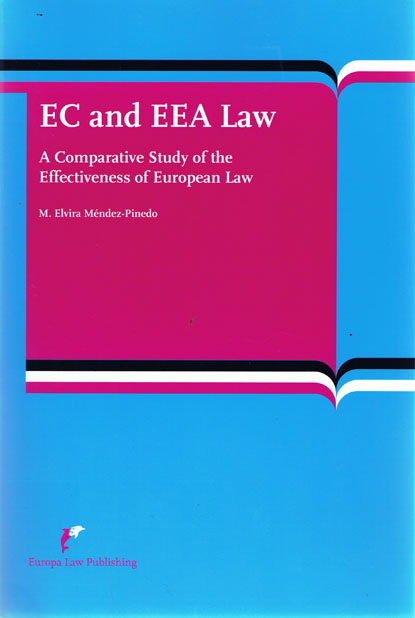
The effectiveness of European Community law (EC law), the way it is enforced in order to assure the judicial protection of individuals penetrating into the national legal orders is probably the most distinguishing feature of this unique legal order in contrast with classic international law. By now, this principle and doctrine created by the European Court of Justice has become part of the European legal order with general acceptance in all EU countries.
By contrast, the effectiveness of European Economic Area law (EEA Law), the way this other even more sui generis legal system provides comparable rights for EFTA-EEA citizens, is a silent revolution brought by the EFTA Court that has not been properly researched and exposed in the field of European law.
The book summarizes and explain the basic principles governing the relationship between EEA law and the national legal systems while searching for similarities and differences with EC law. The research questions that the author explores are the following ones: How does EEA law achieve supremacy over national laws? Does EEA law have direct applicability? Can we speak under some circumstances of a sort of direct effect of EEA law? Can we define EEA law as having “quasi” primacy and “quasi” direct effect? What about the indirect effect of EEA law (duty of consistent interpretation)?
Last but not least, does the doctrine of State liability for breaches of EC law applies to EEA law? If so, what are the differences between the two legal orders? These questions are explored from a European perspective in order to help students, scholars, practitioners and other professionals understand the effectiveness of European law, the special relationship between the Community/EEA legal orders with the national legal systems when the enforcement of European rights and the judicial protection of individuals are at stake.